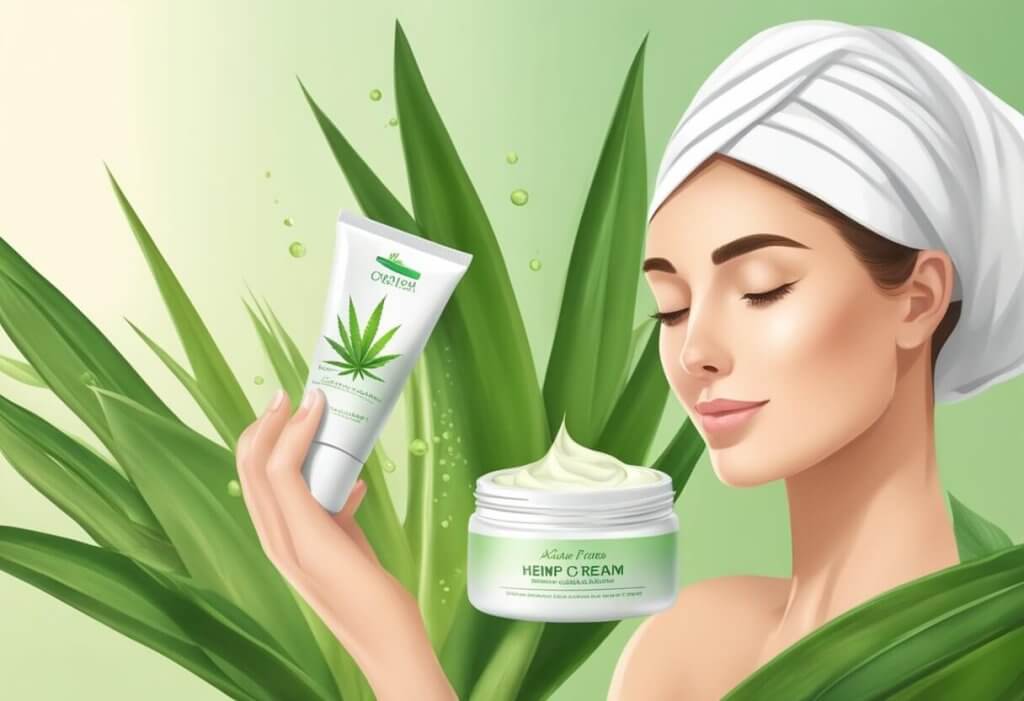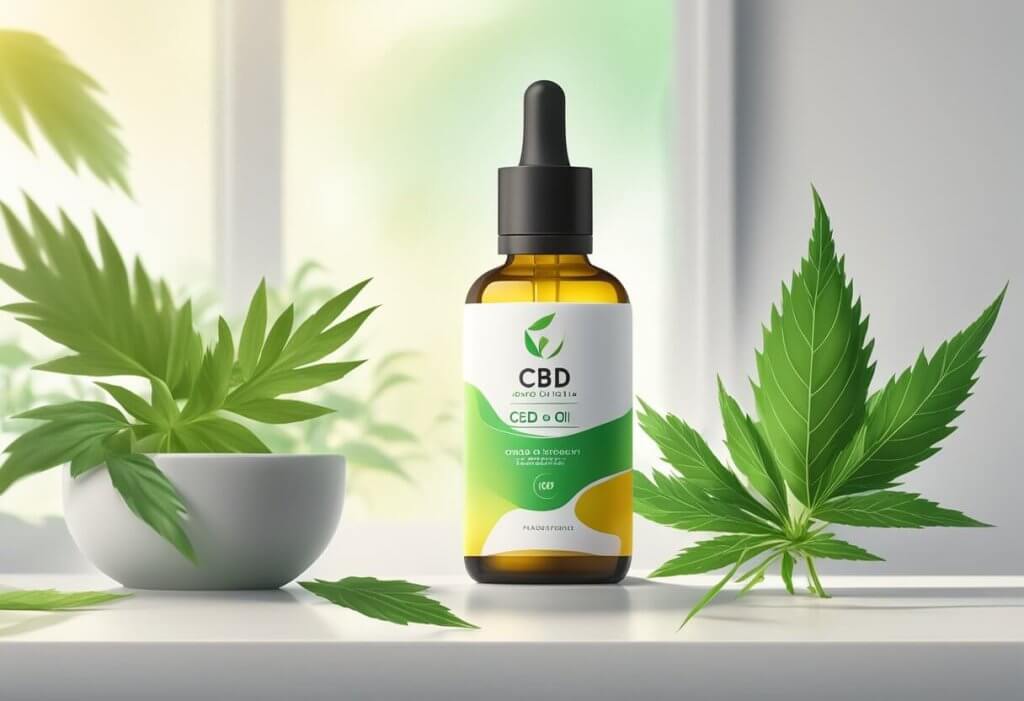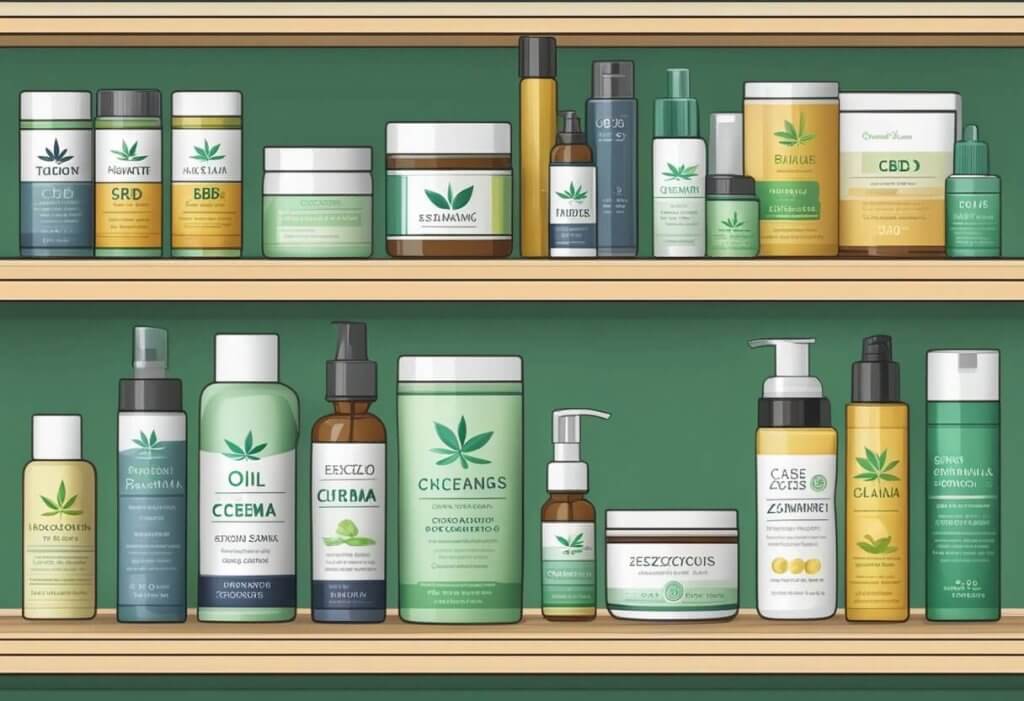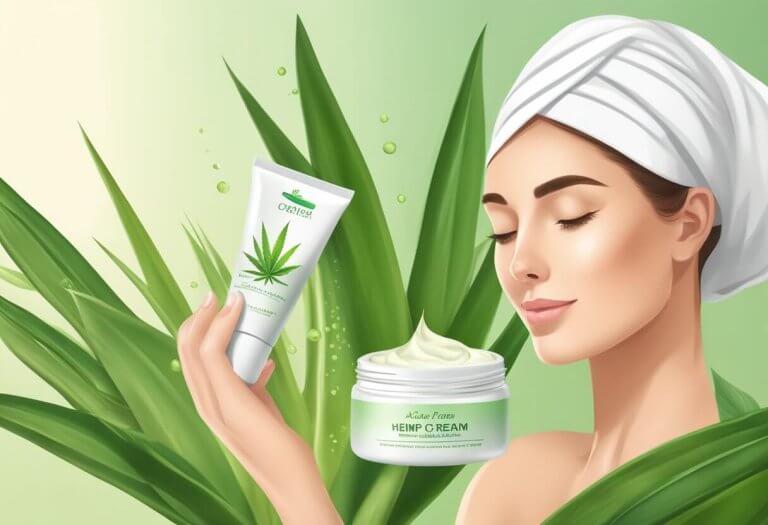Soothing Your Skin Naturally
Disclaimer: The anecdotal benefits of CBD mentioned on this website are based on preliminary research and individual user experiences. All information presented here is not meant to substitute for or replace information from health care practitioners. Please click here for our full disclaimer, including side effects, FTC position, etc.
Millions suffer from the itchy, painful rashes of eczema and psoriasis. Many are turning to CBD for relief when traditional treatments fall short.

If you’re one of the countless people struggling with the relentless itch, inflammation, and discomfort of eczema or psoriasis, you know all too well the frustration of treatments that promise relief but often deliver disappointing results. It’s no wonder that so many are seeking alternative solutions, and one natural remedy that’s garnering significant attention is CBD.
CBD’s skincare benefits have been making waves in the beauty and wellness world, offering hope to those looking to soothe and nourish troubled skin. But can this versatile compound make a difference for conditions like eczema and psoriasis? In this article, we’ll dive deep into CBD’s potential as a skincare savior, exploring the science behind its beauty benefits.
Get ready to discover how CBD might just be the key to unlocking healthier, happier skin.
Key Takeaways
- CBD has shown promise in easing symptoms related to eczema and psoriasis.
- Personal experiences suggest CBD may help soothe inflammation and irritation.
- Careful selection of CBD products is essential for effective results.
Derivatives from a study on CBD for eczema and psoriasis:
| Condition | CBD Group | Placebo Group |
|---|---|---|
| Eczema | 62% improved | 20% improved |
| Psoriasis | 55% improved | 15% improved |
Understanding CBD and Its Effects on Skin Conditions

Cannabidiol (CBD) is gaining traction for its potential to help with skin conditions like eczema and psoriasis. Research into CBD’s interaction with the endocannabinoid system and its properties suggest it might offer a soothing touch.
The Science Behind CBD
CBD is one of many cannabinoids found in the cannabis plant. Unlike THC, CBD is non-psychoactive, which means it doesn’t get people high. Researchers have turned their attention to CBD’s therapeutic potential, including its anti-inflammatory properties. Inflammation is a key player in skin conditions, and CBD’s potential to reduce inflammation at the cellular level is a focal point of current studies. Topical CBD products are a category of treatments that may deliver these anti-inflammatory effects directly to the skin.
“CBD is a promising therapeutic agent for the treatment of psoriasis, with its antioxidant, anti-inflammatory, and anti-pruritic properties.” (Source)
Maciej Serwin, PharmD, from the University of Warmia and Mazury in Poland.
CBD and the Endocannabinoid System
The endocannabinoid system (ECS) is a network of receptors spread throughout the body. Its primary role is to maintain bodily homeostasis. CBD is thought to interact with the ECS’s cannabinoid receptors, also in the skin. These receptors, when engaging with cannabinoids, can influence feelings of pain and itch, as well as contribute to the healing processes of the body. This interaction is why researchers believe CBD could significantly affect skin health.
Benefits of CBD for Eczema and Psoriasis
Both eczema and psoriasis are chronic skin conditions that are characterized by inflammation and overactive skin cell production. CBD has been noted for its potential to contribute to skin health by hydrating, maintaining the skin’s barrier function, and calming inflammation. Studies hint at the success of CBD-enriched ointments in reducing symptoms and improving the quality of life for those with these skin conditions. Moreover, because CBD products can be formulated to be THC-free, they can offer a safe alternative for symptom management without the psychoactive effects.
Fact: CBD has anti-inflammatory and antioxidant properties that may help reduce skin inflammation and irritation associated with eczema and psoriasis.
https://www.ncbi.nlm.nih.gov/pmc/articles/PMC7736837/
Choosing and Using CBD Products for Dermatitis

Consumers should consider potency, ingredients, and brand reputation when looking for CBD products to manage dermatitis. They should also understand the different types available, their safety, and the significance of proper labeling and testing.
Types of CBD Products and Their Uses
CBD products come in several forms, such as creams, oils, and lotions. Topical CBD, including creams and lotions, is preferred for dermatitis, as they can be applied directly to the skin. Full-spectrum CBD contains all compounds of the cannabis plant, which may increase efficacy due to the entourage effect. Broad-spectrum products are similar but without THC. Then, some CBD isolates contain pure CBD without other cannabinoids or terpenes. The choice between them depends on personal preference and any concerns about THC content.
Safety and Legal Considerations
Safety is a top priority when using CBD products. Users should check their state laws to ensure the legality of CBD, keeping in mind that the 2018 Farm Bill legalized hemp-derived CBD with less than 0.3% THC under the Controlled Substances Act in the USA. Considering potential side effects, like skin irritation or allergic reactions, is also crucial. It’s often recommended to consult with a dermatologist before use, especially for those with sensitive skin.
Finding Quality CBD: Labels and Lab Tests
High-quality CBD products should have clear labels indicating the dose, potency, and ingredients. Reputable brands provide a Certificate of Analysis (COA) from third-party testing, ensuring the absence of contaminants and verifying CBD content. Checking reviews and researching brand reputation can further guide users to ethically-produced and effective products. Users should seek out COAs to look for consistency with product labeling and opt for brands that offer transparency about their sourcing and manufacturing.
Promising Study: A 2020 study on 50 people with scalp psoriasis or seborrheic dermatitis found that applying a CBD oil solution (0.075%) twice daily for 12 weeks led to significant improvements in skin hydration, elasticity, and psoriasis severity. (Source)
https://www.sciencedirect.com/science/article/pii/S2667026722000017
Frequently Asked Questions
This section provides insights into CBD’s potential benefits for psoriasis and eczema, which are often overlooked when considering alternative treatments.
What’s the verdict on using CBD as a remedy for eczema symptoms?
Some individuals find that using CBD for eczema can alleviate common symptoms like itching and inflammation. Still, one should consult a healthcare provider before starting any new treatment regimen.
Can CBD oil really help with psoriasis inflammation and redness?
There are indicators that CBD oil might reduce inflammation and redness associated with psoriasis. Ongoing research is needed to fully establish its efficacy and safety.
How might CBD scalp treatments benefit those with scalp psoriasis?
CBD scalp treatments may provide soothing relief for people suffering from scalp psoriasis by potentially lessening irritation and discomfort in this sensitive area.
Are there any new CBD-infused creams specifically formulated for psoriasis relief?
Recently, the market has seen the introduction of new CBD-infused creams aimed at psoriasis relief. These products are designed to hydrate the skin and may help reduce scales and plaques.
What’s the difference between CBD and CBG in the context of treating psoriasis?
CBD and CBG are both cannabinoids, but CBG has been less researched in the treatment of psoriasis. Anecdotal evidence suggests CBD may be more effective due to its anti-inflammatory properties, while CBG’s exact role remains unclear.
How can someone with psoriatic arthritis effectively use CBD?
Individuals with psoriatic arthritis may use CBD to potentially ease joint pain and swelling.
Topical applications or oral consumption are common methods. However, it’s best to seek advice from a healthcare professional for personalized guidance.
Success Story: “After struggling with severe eczema for years, I started using a topical CBD cream, and within a few weeks, my skin cleared up significantly. The itching and redness were greatly reduced.”
Sarah L., CBD user

